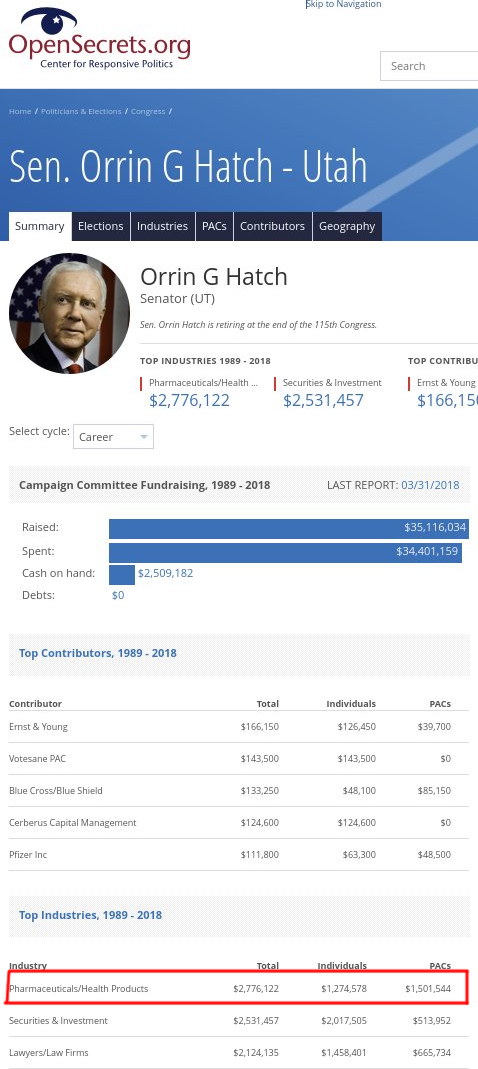

Source: OpenSecrets
THE US patent system, where courts call the shots and the USPTO just stamps lots of dubious patents, shows quite clearly the result of decades of over-granting. When a patent system loses sight of its original goal/s it may simply become a patent-printing machine and litigation pipeline, detached fully from the image/vision of innovation.
The growing consensus around changing the laws concerning patent eligible subject matter in the US received another boost late last week when the New York Intellectual Property Law Association (NYIPLA) backed a joint proposal for reform from the Intellectual Property Owners Association (IPO) and American Intellectual Property Law Association (AIPLA) . While changing section 101 of the US patent statute remains a significant challenge given the competing interests of various industries, the fact that several of the main players representing both operating companies and private practice lawyers are coalescing around proposed new language is significant.
Early in my career, I used to ridicule Chief Justice Burger’s assertion in a famous case that whether certain bacteria were patentable or not “may determine whether research efforts are accelerated by the hope of reward or slowed by want of incentives, but that is all.” If patents had only such a marginal impact on innovation, I wondered, why bother having a patent system in the first place? As the years have passed, however, I’ve come to see that maybe the chief was right—that, as Kevin Kelly writes, the technium evolves according to its own unique path and timetable. Perhaps the best the law can do is move it along a little faster or smoother than it otherwise might go. A rather humble mandate, perhaps; but at a time in which humility often seems to be in short supply, a bit refreshing for all that.
But the dynamics of the patent system have changed in recent decades. Public health activists have filed lawsuits stating that, rather than increasing access to technology, patents create monopolies that make good health unaffordable and inaccessible for many. In 2013, a coalition of patients, health care professionals and scientists challenged patents covering genes linked to breast and ovarian cancer at the U.S. Supreme Court. They argued the patents had led to expensive and poor-quality genetic tests available only through one company: Myriad Genetics, the patent holder.
Meanwhile, small farmers have organized protests against seed patents, suggesting they accelerate the corporate control of agriculture in ways that are damaging for their livelihoods, for innovation, for consumers and for the ecosystem.
And civil society groups have instigated legislative hearings and media campaigns arguing that patents implicitly provide moral certification for the development and commercialization of ethically controversial areas of research and development. Such campaigns began as early as the 1980s, when environmentalists, animal rights organizations and religious figures challenged the patentability of genetically engineered animals. They worried that by turning these animals into commodities, the patent system would transform people’s understanding of ownership and our relationship with the natural environment.
Patent system officials and lawyers tend to view this activism as seriously misguided. They argue that these citizen challengers lack the expertise to understand how the patent system works: It is a limited domain focused merely on certifying the novelty, inventiveness and utility of inventions. This technical and legal orientation is also embedded in the rules and processes of the system, which make it virtually impossible for average citizens to participate, except by submitting patent applications.